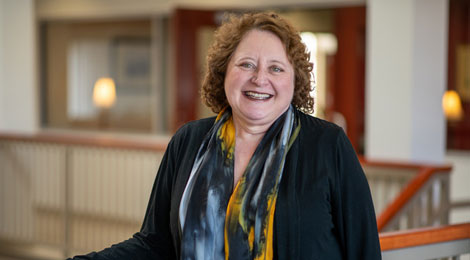News
Looking for the latest news?
Why Should We Educate the Whole Person?
The best education addresses the person’s entire being.
By Dr. Linda Quinlan, Associate Professor of English

I was glad to see my student Carla when she knocked on my office door. Usually an active and engaged participant, she had just missed a whole week of classes with no notice or explanation. She told me her mother was very ill and had taken a turn for the worse.
I could have focused our conversation on her lack of attendance. But I didn’t. I encouraged her to visit our Counseling Center and reach out to a trusted friend for comfort.
The following week, my student appeared for class bright and early to hand in her (excellent!) essay.
I tell this story to highlight the importance of an educational commitment to whole-person development. When our students join our classes, they bring with them years of lived experiences and feelings that have shaped them into the people they are. By recognizing the wide range of our students’ backgrounds and avoiding making general assumptions about them, we instead work hard to get to know those we have been charged to teach. And we recognize that each student is uniquely created in God’s image.
At Roberts, we believe the best education addresses the person in his or her entirety. This includes their physical, psychological, social, rational, and spiritual needs. Academically, no single method of inquiry or verification is regarded as the route to knowledge. It is important to have a well-rounded approach to the set of skills that will provide for a life of achievement and service.
As an educator, one of my main goals is to encourage intellectual and spiritual humility among my students. If they are to fulfill the College’s mission “to prepare thoughtful, spiritually mature, service-oriented people who will help transform society,” we must help them learn about their fellow human beings. One way this can be done is by studying their stories.
When we read, we are offered insights into the human experience—about the challenges that have perplexed, amazed, delighted, and moved people for centuries. We are called to think about our own lives and our relationships with others. We discover surprising connections between us and them. We’re reminded that we are not alone.
By honoring our students’ individual experiences, being responsive to their needs, and encouraging them to learn each other’s stories—by thoughtfully nurturing the whole person—we can be secure in the knowledge that through this work our faith is ever growing, as we each live out our own journey to the gift of God’s grace.



